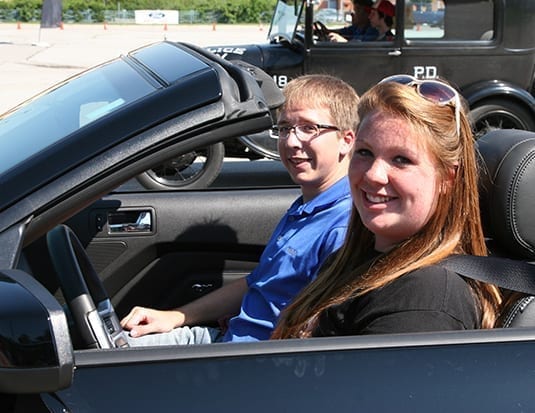They just like them differently as it turns out.
Over the last number of years, automotive industry conferences have seen many declarations about how younger generations, categorized as millennials and Gen Z respectively, don’t have an interest in cars the same way their parents or grandparents did and that rather than getting a driver’s licence, their biggest concern when they turn 16 is the latest smartphone.
Well, there is growing evidence to suggest that young people do actually like cars, it’s just that they convey their passion in a different way. In 2019, the Specialty Equipment Market Association (SEMA) released findings from its SEMA Young Accessorizers Report.
Delayed desire
Specifically targeting 1000 young accesorizers aged 16-24, the report showed that while there were fewer teens getting their drivers licence at age 16, as these people get older, they are more likely to do so, as well as spend more money personalizing their vehicles for performance and individuality.
According to data from the SEMA report, in the U.S. at least, 7.9 million young people accessorize their vehicles, spending approximately $7.2 billion a year. In pointing to media reports that young people aren’t interested in vehicle ownership, Gavin Knapp, SEMA’s Director of Market Research says, “a lot of what’s coming out about vehicles in general comes from media and analysts who live in places like Manhattan and think the whole world is following the trends found there.
“One example is the idea that college-age kids in highly condensed urban areas aren’t owning cars. But that’s nothing new. If you look back 10 or 20 years, that same demographic also didn’t own cars. And just because someone may fit into that box now doesn’t mean that they’re going to act the same when they’re 30 or 35 and their life is completely changed.”
Knapp also cites the high cost of driver’s education as a deterrent to younger teens getting their licence and the exorbitant cost of vehicle insurance for younger motorists. “There’s not free drivers’ education anymore, and so they wait,” he says.
But Knapp acknowledges that once these young people get a licence and start driving, they begin to understand the independence it brings. “Once they have their license and start driving—and especially once they get into their 20s—they need a car for work, school and socializing, and they want to make that car their own,” he says.
Something old, something new
The report also presented some interesting findings in that young people today continue to see cars and trucks as a way to overcome isolation and find their own adventures. And perhaps surprisingly, many surveyed said they would rather give up their smartphone for a week than go without their vehicles. Yet the way in which they interact with each other and their cars is different than generations before.
“Nuts and bolts don’t speak to this demographic, which grows into the hobby gradually over time,” says Kyle Cheng, lead SEMA Research Manager for the report.
He notes that 16-24-year-olds tend to see their vehicles less as projects and more of a way to connect with their friends and if they work on them, they are more likely to do it in a group setting.
(More details on this report and others can be found at sema.org/market-research/).



